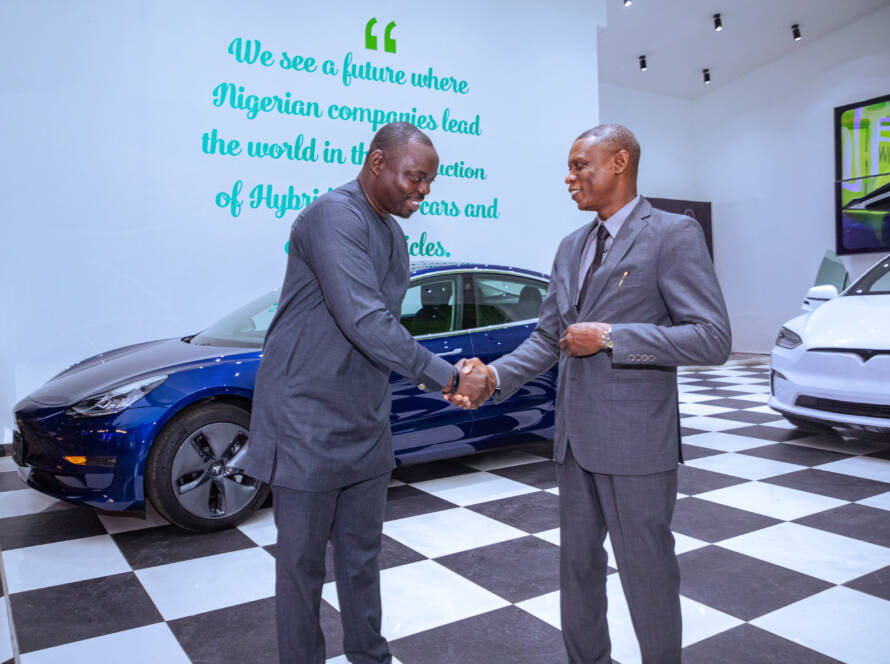Electric vehicles promise significant economic benefits for Nigeria, from reducing fuel costs and creating jobs to promoting sustainable development. In this interview, we sit down with the CEO of Possible EVS to explore these advantages in depth. Discover how EVs can transform our economy, the strategic role of asset financing, and how Possible EVS is leading the charge by investing in efforts and initiatives towards widespread adoption of EVs in Nigeria.
Interviewer: Mr. Mosope Olaosebikan, thanks for joining me on this conversation.
CEO: Thanks for having me. Excited to share our vision and insights.
Interviewer: Let’s start with the basics. Why are electric vehicles important for Nigeria?
CEO: Great question. Nigeria, like many countries, faces significant challenges with air pollution and fuel dependency. Electric vehicles offer a cleaner, more sustainable alternative. They reduce greenhouse gas emissions, improve air quality, and lessen our dependence on imported fuels.
Interviewer: That’s compelling. But what about the economic benefits? How do EVs make business sense here?
CEO: The economic benefits are substantial. First, there’s the cost savings. EVs are cheaper to operate than traditional internal combustion engine (ICE) vehicles. Electricity is less expensive than petrol or diesel, and EVs have fewer moving parts, which means lower maintenance costs.
Interviewer: That sounds promising. Can you give us some numbers?
CEO: Absolutely. Studies have shown that, over their lifetime, EVs can save owners up to 50% on fuel and maintenance costs compared to ICE vehicles. For example, in Nigeria, the average car owner spends about 30-40% of their income on fuel and maintenance. Switching to EVs could significantly reduce these expenses.
Interviewer: Interesting. But what about the initial cost? Aren’t EVs more expensive to buy?
CEO: That’s a common concern, but it’s changing. While the upfront cost of EVs can be higher, the total cost of ownership over time is lower. Plus, with advancements in technology and economies of scale, the prices of EVs are coming down. At Possible EVS, we also offer asset financing to make EVs more accessible to Nigerians.
Interviewer: Could you explain how asset financing works?
CEO: Sure. Asset financing allows customers to pay for their EVs over time rather than all at once. It’s similar to a mortgage for a house. This model helps reduce the initial financial burden, making it easier for more people to switch to electric vehicles.
Interviewer: That’s a smart approach. How does it impact the adoption rate of EVs in Nigeria?
CEO: Significantly. By lowering the financial barrier, more people can afford EVs. This increase in demand drives local manufacturing, creating jobs and boosting the economy. It’s a positive cycle.
Interviewer: You mentioned local manufacturing. How is Possible EVS contributing to this?
CEO: We’re committed to building a robust EV ecosystem in Nigeria. We’ll start local assembly of EVs here in Nigeria, which reduces costs and creates jobs. We’re also investing in training programs to equip Nigerians with the skills needed for this new industry.
Interviewer: That’s fantastic. What about the infrastructure? How is Possible EVS addressing the need for charging stations?
CEO: Infrastructure is crucial. We’re working on establishing a network of charging stations across major cities and highways. We’re also exploring partnerships with local businesses to install chargers at convenient locations like malls and workplaces.
Interviewer: That sounds comprehensive. How do you see the future of EVs in Nigeria?
CEO: The future is bright. With the right policies, incentives, and infrastructure, Nigeria can lead the electric vehicle revolution in Africa. The benefits—environmental, economic, and social—are immense. We’re just at the beginning of this journey, but the potential is enormous.
Interviewer: Any final thoughts for our readers?
CEO: Yes, I’d like to encourage everyone to consider the long-term benefits of switching to EVs. It’s not just about saving money; it’s about investing in a cleaner, healthier future for Nigeria. At Possible EVS, we’re here to support that transition every step of the way.
Interviewer: Thank you so much for your time and insights. It’s been a pleasure speaking with you.
CEO: Thank you. The pleasure was mine.
The adoption of electric vehicles in Nigeria offers a pathway to economic growth, environmental sustainability, and energy independence. As highlighted by the CEO of Possible EVS, the integration of EVs can significantly reduce operational costs, create new job opportunities, and position Nigeria as a leader in green technology. Embracing this transition is not just a necessity for tackling climate change but also a strategic move to drive economic progress.


